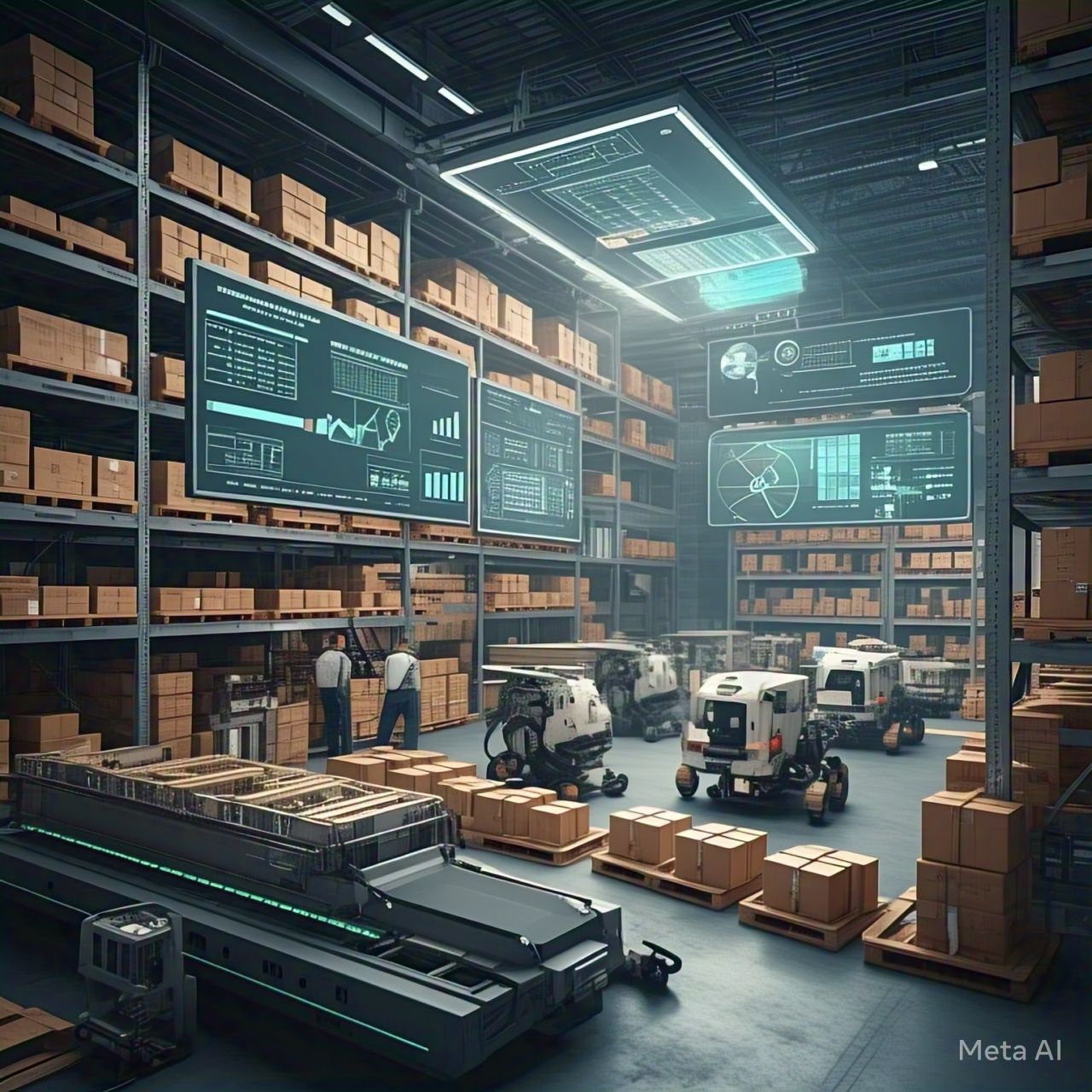Artificial Intelligence (AI) is transforming supply chain management by enhancing efficiency, reducing costs, and optimizing logistics. With AI-powered solutions, businesses can improve inventory management, streamline operations, and enhance decision-making. This article explores how AI is reshaping supply chain management and enabling smarter logistics.
AI in Demand Forecasting
AI-driven predictive analytics are helping businesses anticipate demand fluctuations and optimize inventory levels.
- Machine Learning Algorithms: AI analyzes historical sales data and external factors to predict future demand.
- Real-Time Data Processing: AI continuously monitors market trends, weather conditions, and consumer behavior to adjust inventory needs.
- Improved Accuracy: AI-powered forecasting reduces stock shortages and overstock situations, improving supply chain efficiency.
AI in Inventory and Warehouse Management
AI is enhancing warehouse operations by automating inventory tracking and optimizing storage solutions.
- Automated Inventory Control: AI-powered sensors and RFID technology track stock levels in real time.
- Warehouse Robotics: AI-driven robots handle sorting, packing, and transporting goods, improving efficiency.
- Smart Storage Optimization: AI determines the best storage locations to minimize retrieval times and maximize space utilization.
AI in Logistics and Transportation
AI-driven logistics solutions are improving route optimization, delivery efficiency, and fleet management.
- Route Optimization: AI analyzes traffic patterns and weather conditions to determine the fastest and most cost-effective routes.
- Autonomous Vehicles: AI-powered self-driving trucks and drones are enhancing last-mile delivery services.
- Fleet Management: AI monitors vehicle performance and maintenance schedules to reduce downtime and operational costs.
AI in Supplier and Vendor Management
AI is streamlining supplier relationships and optimizing procurement strategies.
- Supplier Risk Assessment: AI evaluates supplier reliability based on historical data and market trends.
- Automated Procurement: AI-driven systems streamline purchase order processing and contract negotiations.
- Enhanced Transparency: AI-powered blockchain integration ensures secure and transparent supplier transactions.
AI in Risk Management and Security
AI is mitigating supply chain risks by detecting anomalies and preventing disruptions.
- Fraud Detection: AI identifies suspicious transactions and potential security threats in the supply chain.
- Disruption Prediction: AI anticipates delays caused by geopolitical events, weather disruptions, and raw material shortages.
- Compliance Monitoring: AI ensures adherence to regulatory requirements and industry standards.
The Future of AI in Supply Chain Management
As AI technology continues to evolve, its impact on supply chain management will grow. Businesses that leverage AI-driven logistics solutions will gain a competitive edge in efficiency, cost reduction, and customer satisfaction. However, ethical considerations such as data privacy and workforce adaptation must be addressed to ensure responsible AI implementation.
Conclusion
AI is revolutionizing supply chain management by enabling smarter logistics, improving demand forecasting, and optimizing warehouse and transportation operations. From real-time inventory tracking to automated procurement, AI-driven innovations are transforming the supply chain landscape. As AI adoption expands, businesses that embrace these technologies will thrive in an increasingly complex global market.



